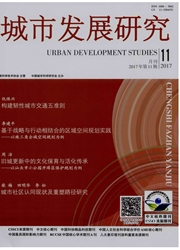

 中文摘要:
中文摘要:
公私合作是新公共管理理论和新监管理论在公共服务市场化改革中的具体应用,在发达国家总体上取得了较好的效果。但我国公交公私合作经历改革热潮后,大多却以逆民营化收场,形成国有低效与民营乱象的两难困境。分析发现,并非城市公用事业不需要或不能进行公私合作,而是进行有效的公私合作需要一定的制度条件与监管措施,其中法律规范、市场机制及公共管理能力等都是影响其成效的关键因素。在上述条件不完善时,盲目推行公私合作难以取得预期效果,逆民营化现象也在情理之中。因此需要在完善上述制度能力的基础上,破解公私合作困境,提升公共服务质量。
 英文摘要:
英文摘要:
Public private partnership is the concrete application of the new public management theory and the new supervision theory in the public service market reform,and has achieved good results in the developed countries. But after a upsurge of reform on public transit in our country,the public-private partnership,but mostly to reverse privatization ended,the formation of the dilemma of inefficient state-owned and private chaos. Analysis found that are not the urban utilities don't need or not of public-private cooperation,but effective public-private collaboration requires a certain institutional conditions and regulatory measures,and legal norm,the market mechanism and public management ability are the key factors affecting the effectiveness of. When the conditions are not perfect,it is difficult to achieve the expected results of the blind implementation of public private partnerships,the phenomenon of reverse privatization is also reasonable. Therefore,we need to improve the ability of the above system,to crack the plight of public private partnerships,to improve the quality of public service.
 同期刊论文项目
同期刊论文项目
 同项目期刊论文
同项目期刊论文
 期刊信息
期刊信息
